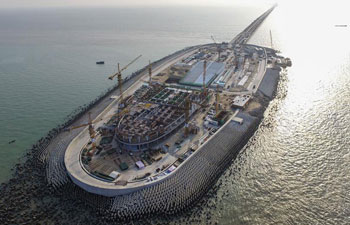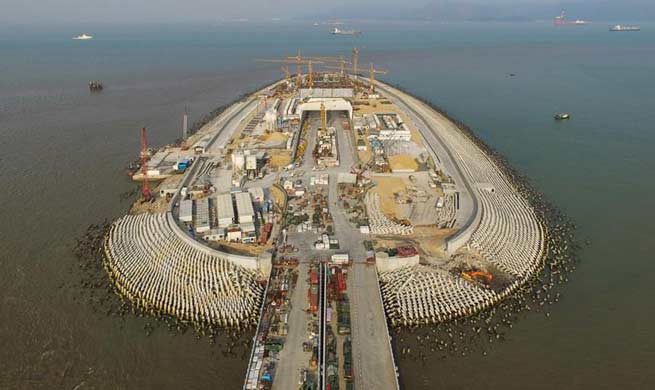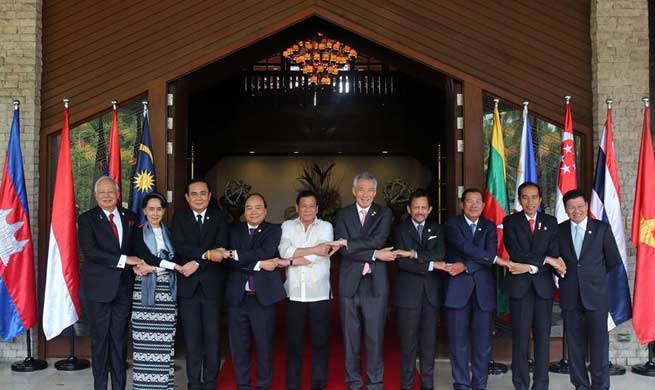SAN FRANCISCO, April 29 (Xinhua) -- A new study supports the idea that analysis considering a range of flood scenarios, as opposed to a single 100-year threshold, could be more robust and accurate about vulnerability of bridges.
Current risk assessments in the United States generally assume that bridges may collapse when a 100-year flood, namely a streamflow with 1 percent probability of being exceeded in any given year, or 63 percent over the course of a century, occurs.
This assumption underestimates risk, according to authors of a paper published in the Journal of Infrastructure Systems, because it fails to capture the full range of stream flow conditions that can cause bridge collapse.
In their analysis, the researchers considered the full variability of floods that could cause collapse, as opposed to the 100-year approach, thus identifying a greater sensitivity to changes in the underlying frequency of flooding.
Of the 35 bridges analyzed, 23 were estimated to have collapsed during a water flow of lesser intensity than a 100-year flood level.
The authors note that a primary reason for these lower flow collapses is the fact that most of those collapsed bridges were built before modern design standards.
Because most U.S. bridges, along with most U.S. infrastructure, pre-date the modern design standards, the results highlight a more general risk that extreme climate events pose to U.S. infrastructure.
Last month, the American Society for Civil Engineering gave U.S. bridges a C+, estimating that 123 billion U.S. dollars is needed to clear the maintenance backlog; and that an additional 140-250 billion dollars over the 21st century may be required to address the increasing risks posed by climate change, according to past research.
"To balance funding between the backlog and climate adaptation, bridge managers will need robust data on collapse risk," said lead author Madeleine M. Flint, an assistant professor of civil & environmental engineering at Virginia Polytechnic Institute and State University. "Our study is a step in that direction."
The study came at a time when the current U.S. administration, led by President Donald Trump, is considering a 1 trillion dollars budget proposal to update infrastructure, including bridges.
"Updating our infrastructure will require both making up for deferred maintenance, and preparing for the increasing risk of extreme events that comes along with global warming," said Noah Diffenbaugh, a professor of Earth system science at Stanford University.

















